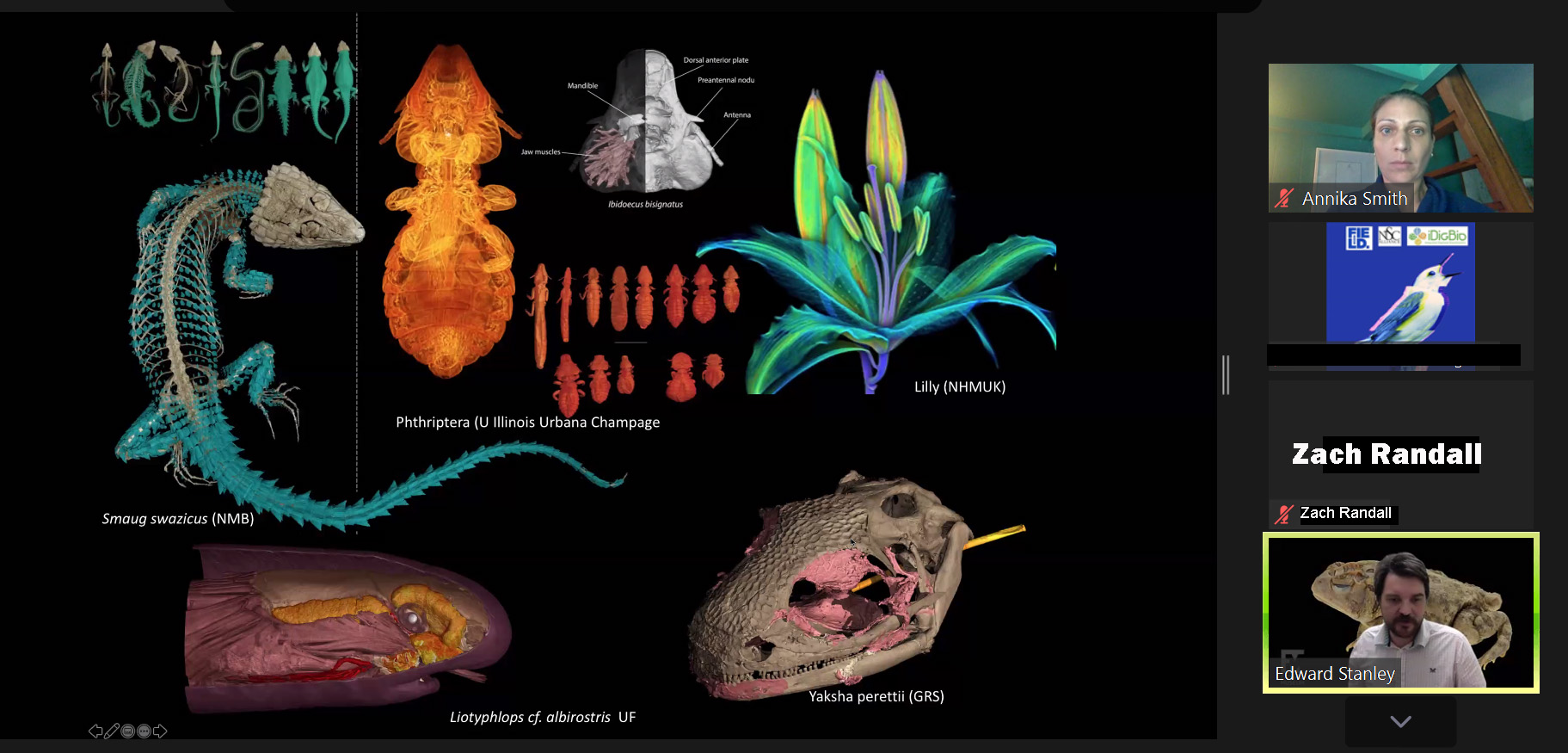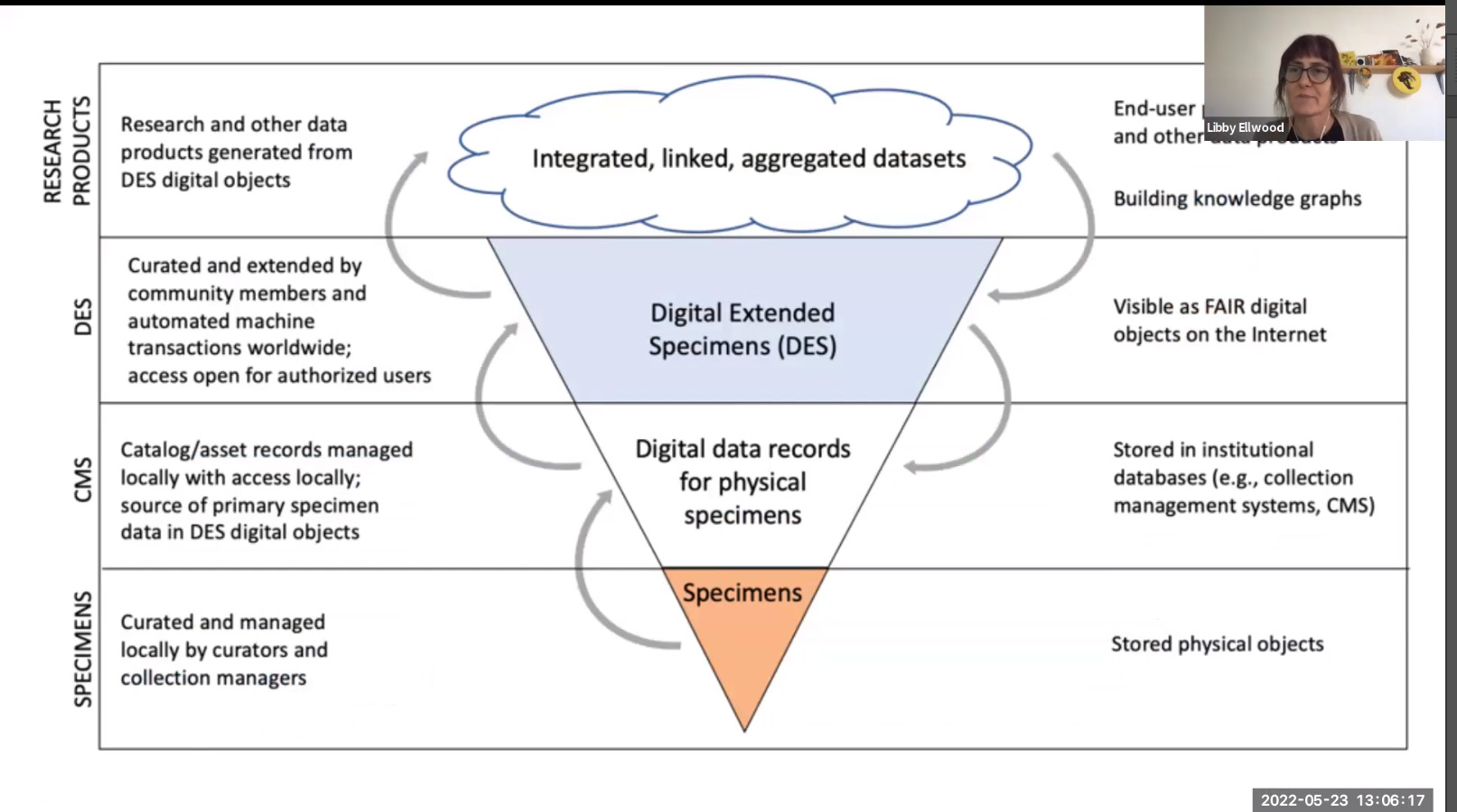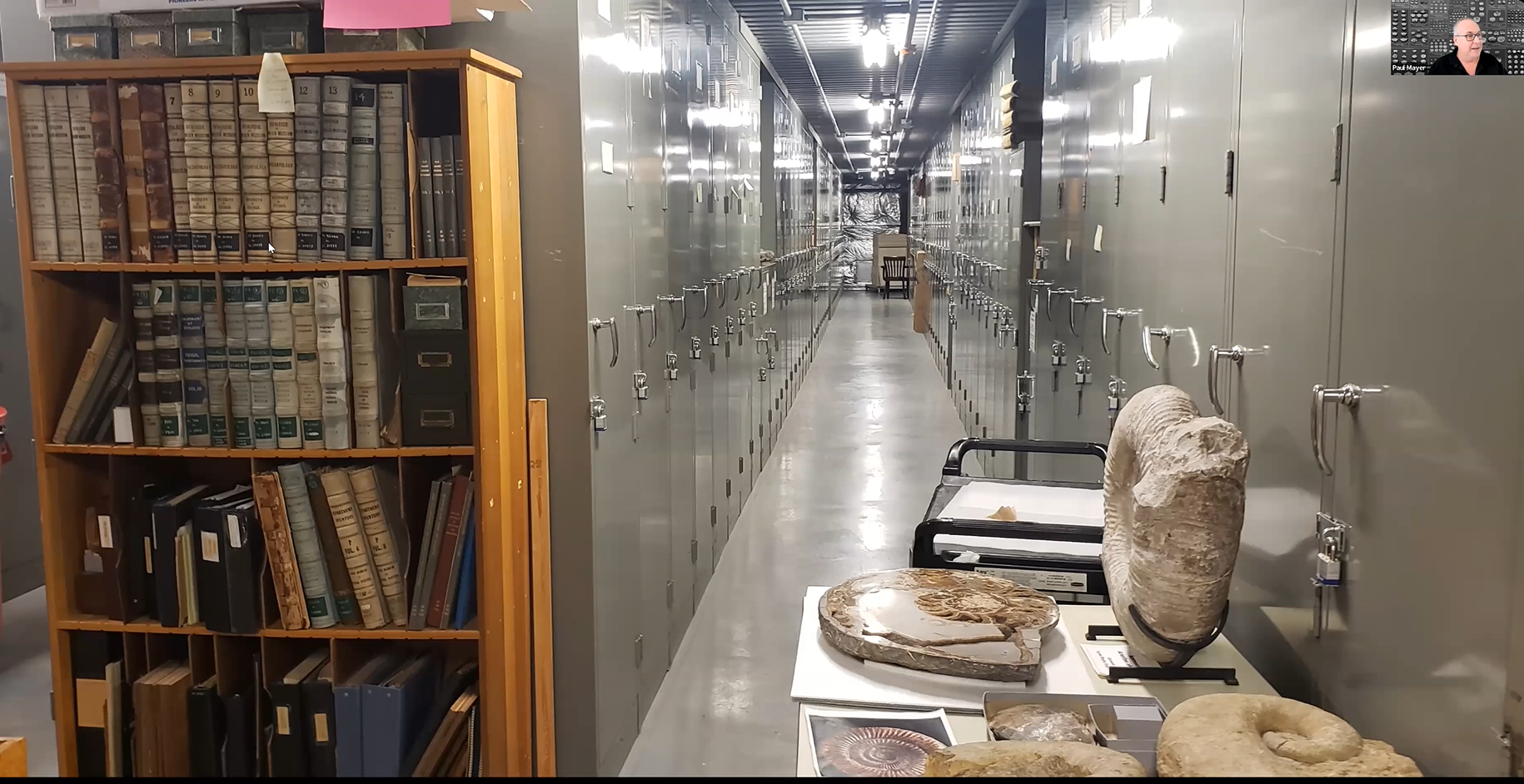The Field Museum in collaboration with iDigBio and the Natural Science Collections Alliance held the sixth annual Digital Data in Biodiversity Research Conference virtually May 23-25, 2022. This was the third year the conference was held virtually. The virtual format again proved successful with 405 registrants from 34 countries. The conference was organized into three time blocks spanning the day to accommodate live viewing for different time zones. Pre-recorded oral presentations were also provided by presenters to allow for viewing outside of the live event. Conference recordings can be found on the wiki page.
Themes for 2022 included: Using digitized specimen records in conservation-related research, management, and policy; Crowdsourcing, community science, and public participation; Advances in machine learning & CT; Enhancing research capacity: getting more from our data and making connections for extended specimens; Education & Inclusion; Data gaps and challenges; Enhancing & advancing quality of digitized data; and Securing specimens and data.
Each day offered opportunities to hear from plenary speakers addressing a variety of important topics in the community. Dr. Charlotte Germain-Aubrey addressed her work serving as a Scientific Officer at the Secretariat for the Convention on Biological Diversity. As part of the Access and Benefit-Sharing team, she deals with the implementation of the Nagoya Protocol, overseeing Digital Sequence Information on Genetic Resources, for which parties are negotiating the access and the modalities for sharing benefits that stem from the use of digital sequence data. Dr. Nigel Pitman addressed a digital tool within Map of Life that can translate millions of biodiversity occurrence records from natural history museum and other global databases into actionable recommendations for land managers in Colombia, Ecuador, and Peru. Dr. Marianna Simões spoke of challenges faced with data quality of museum specimens digitization and how it limits the use of ecological niche modeling. Dr. Steve Ellis from the National Science Foundation gave another helpful NSF review. Dr. Paula Mabee gave a fantastic review of NEON and the importance of utilizing global biological collections data to negotiate the human-machine partnership to better provide fundamental understanding of Earth systems. Dr. Warren Cardinal-McTeague gave an inspirational talk discussing Indigenous data sovereignty (IDS) in the context of biological collections, with a focus on the challenges and opportunities of managing physical and digitized plant specimens. The talk addressed goals to co-develop data governance protocols with Indigenous communities in order to find a balance the between IDS and Open Science frameworks.
 Seven discussion sessions were offered at this year’s event. Two discussion sessions focused on the continually evolving digital extended specimen concept. The sessions provided a helpful platform to highlight developments, hear from experts on the subject, and have useful conversations about possibilities in the future. Other discussion sessions focused on resource and knowledge sharing and workforce development opportunities. Digital imaging was another popular topic at this year’s event and was addressed from different perspectives, which proved helpful for the diverse audience who attended the event.
Seven discussion sessions were offered at this year’s event. Two discussion sessions focused on the continually evolving digital extended specimen concept. The sessions provided a helpful platform to highlight developments, hear from experts on the subject, and have useful conversations about possibilities in the future. Other discussion sessions focused on resource and knowledge sharing and workforce development opportunities. Digital imaging was another popular topic at this year’s event and was addressed from different perspectives, which proved helpful for the diverse audience who attended the event.
The Field Museum hosted 11 virtual collection tours Monday and Tuesday evenings. Most of the presentations highlighted exceptional aspects of the museum’s collections. Tours were presented in a variety of formats. Some were pre-recorded and highlighted individual specimens while others were live tours led by curators and collection managers. All tours were equally engaging and very well received by the audience. Tours were also provided by Field Museum partners, including the Chicago Academy of Sciences and the Chicago Botanic Garden. Special thanks to Petra Sierwald and Rüdiger Bieler from the Field Museum for all their help organizing such a fantastic tour lineup. All of the tours were recorded and can be found on the conference wiki page.

A Digital Data Bioblitz and virtual mentoring session were offered again this year. The mentoring session attracted 35 participants from different stages of their careers and included networking meet-ups on Kumospace and 1-1 mentoring sessions before and after the conference.
It was evident at this year’s conference how much evolution there has been within the digital data community over the past six years. The uses of digital biodiversity data continue to expand and the importance of the work accomplished within this field was again highlighted over the three days of the conference.
Save the Date: Next year we plan to do a HYBRID meeting! We hope to see everyone virtually or in person in Tempe, AZ June 5-7.








